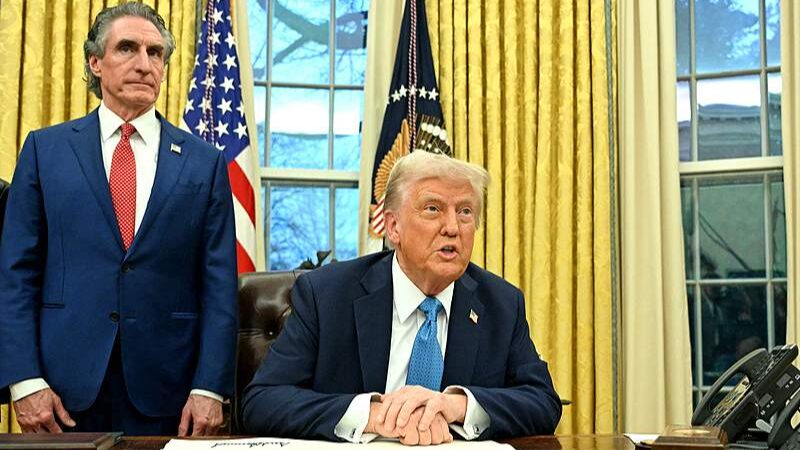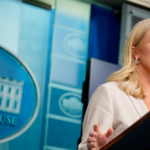🚨 In a bold move, President Donald Trump confirmed the implementation of 25% tariffs on imports from Canada and Mexico starting February 1. This decision caused the U.S. stock market to take a sharp dive on Friday, reflecting investor concerns.
White House press secretary Karoline Leavitt announced the tariffs, which target major sectors including chips, oil and gas, steel, and aluminum. Trump hinted at even broader tariffs on oil and gas coming in mid-February, sending oil prices soaring. However, crude oil imports from Canada are expected to face a lower tariff rate of 10%.
🌐 The announcement didn't stop there—Trump also vowed to impose tariffs on imports from the European Union, though he didn't specify a timeline. This has set the stage for potential retaliation from affected countries.
💥 Retaliation Set to Follow
Canadian Prime Minister Justin Trudeau responded swiftly, stating that Canada is ready to deliver a \"purposeful, forceful but reasonable, immediate\" response if tariffs are imposed. Canada is the largest supplier of U.S. energy imports, including crude oil and natural gas.
Mexico isn't backing down either. President Claudia Sheinbaum emphasized a strategic approach with multiple plans depending on the U.S. government's actions, warning that Trump's tariffs could cost up to 400,000 U.S. jobs and increase consumer prices.
📈 Economic Disruption Ahead
Economists warn that these tariffs could escalate inflation and disrupt global trade. The International Monetary Fund's chief economist, Pierre-Olivier Gourinchas, noted that the tariffs are likely to push inflation higher in the near term, reducing economic output and increasing price pressures.
Businesses anticipate higher costs for imports like aluminum, lumber, and electronics, which could cascade through the economy, impacting consumers and businesses alike on both sides of the border. Liu Ying from Renmin University highlights the potential for a realignment of global trade patterns, further adding volatility to financial markets.
As the situation unfolds, all eyes are on how these tariffs will shape the future of international trade and economic stability.
Reference(s):
Retaliation, inflation, disruption: What to take from Trump tariffs?
cgtn.com





